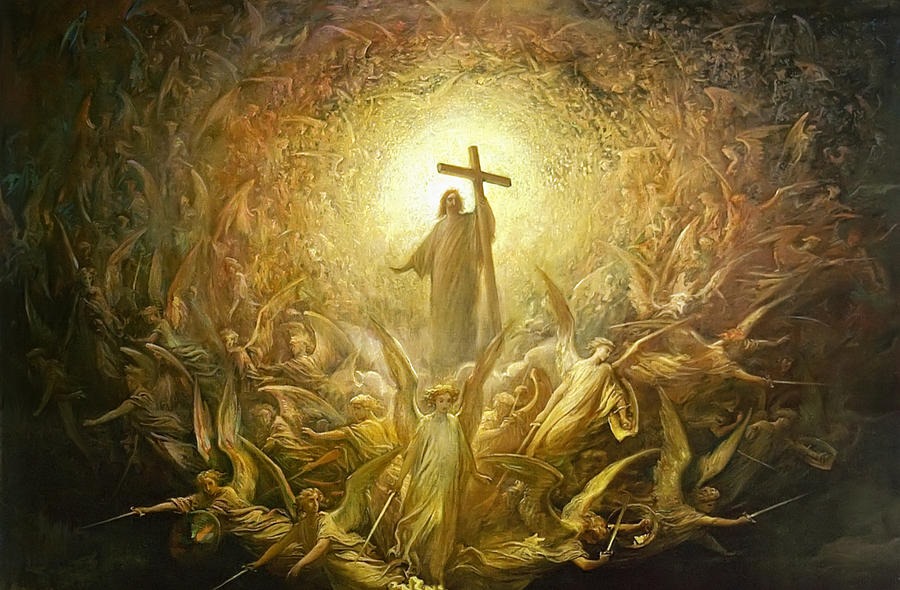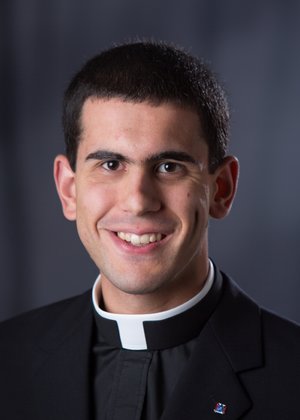I Believe in the Resurrection of the Body
/By Fr. Patrick J. Fiorillo
(Homily delivered at St. Paul Parish - Cambridge, MA, Easter 2019 )

1600 years ago, St. Augustine proclaimed, “On no point does the Christian faith encounter more opposition than on the resurrection of the body.” And that very well may still hold true today. Each Sunday we profess in the Nicene Creed, “I look forward to the resurrection of the dead and the life of the world to come. Amen.” Or in the Apostles’ Creed, “I believe in the resurrection of the body and life everlasting. Amen.” These concluding statements of the creeds may seem to be nothing more than a tag ending – far less significant than the statements preceding them about God the Father, Son, and Holy Spirit.
I believe in the resurrection of the body. “Yes, I get,” one might say. “Jesus’ body was resurrected on the 3rd day and that’s why we celebrate Easter.” But when we Catholics assemble at Mass to commemorate the events of salvation history, we’re not merely recalling an event from the past; we do it so that we ourselves can relive it in the present. That statement of faith, I believe in the resurrection of the body, is the key to unlocking how we live out the Easter mystery. It’s actually not a statement about Jesus. I believe in the resurrection of the body is about your body and mine.
At our death – that moment of separation of body and soul – we are incomplete, disintegrated human persons. Even if our soul lives on in heaven, it still will not be in a state of complete, perfect happiness. Being human means having a soul and a body. Our bodies and the lives we live therein are essential to who we are. Our ultimate destiny is not liberation from the body as Plato taught, but rather a perfectly integrated state, brought about by a perfect union of soul and body. Christ revealed this to us at his own resurrection, and he will fulfill it in all who are saved when he returns at the end of time.
To believe in the Easter mystery and have our lives shaped by it is one of the most fundamental parts of being Christian. Why has such a basic teaching of the Church been so controversial throughout the centuries? Probably because so many fail to recognize just how incredible our destiny really is. Do we realize that at the General Resurrection, we will receive a spiritualized body like the risen Christ, meaning the Holy Spirit will permeate every aspect of our body and soul, and there will be no deficiencies or experiences of weakness? We will be perfected on every level of body and soul and the two will experience perfect harmony together. That’s our destiny, and we can anticipate it now by the way we live in our bodies day to day.

Rising with Jesus is not just about the end of time. Each day when we pick up our cross, follow after Jesus, and die to our sinful inclinations, we can rise with Jesus. Each day when God’s grace allows us to experience peace and new life in Christ, we can rise with Jesus. Each day when we resist temptation or give up something to follow Christ, we can rise with Jesus.
In a world filled with despair, loneliness, isolation, and anxiety about the future, one of the most powerful ways of bearing witness to the Gospel is showing others the hope of the resurrection: living each day with the steadfast hope that in Christ, every trial, every suffering is redeemable and meritorious. Each one of us should be able to say with conviction, “my life is better for being Christian,” or “Christ is transforming me – he is sanctifying me through the crosses I bear and giving me new life and peace.”
The resurrection is the ultimate sign of hope. Jesus conquered death through the sacrifice of his human body. He now reigns gloriously in heaven. If we accept Jesus’ invitation to follow him and to die with him, then we will also rise with him to a life far greater than what any human mind can fathom.

Fr. Patrick Fiorillo is the Spiritual Director of Pure in Heart America, and currently serves as parochial vicar of St. Paul Parish in Cambridge, MA, and as the undergraduate chaplain of the Harvard Catholic Center.





